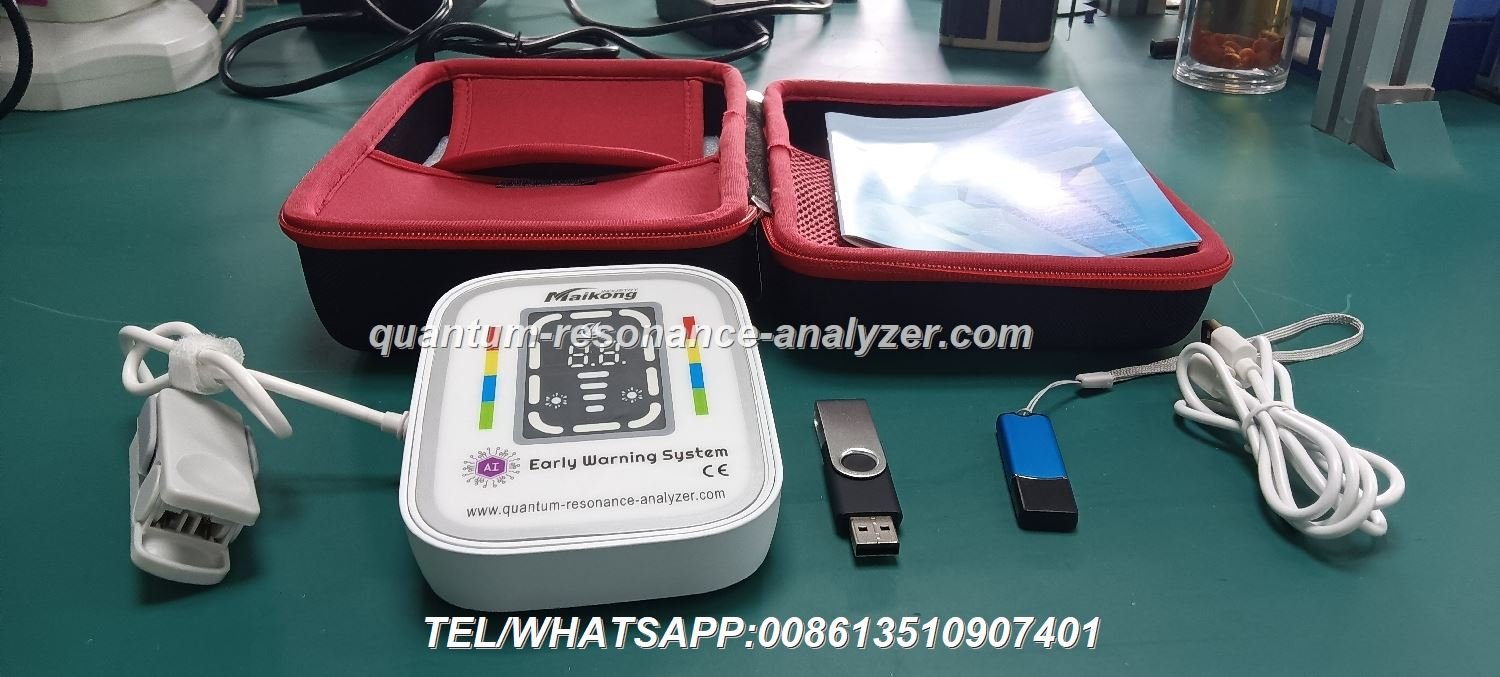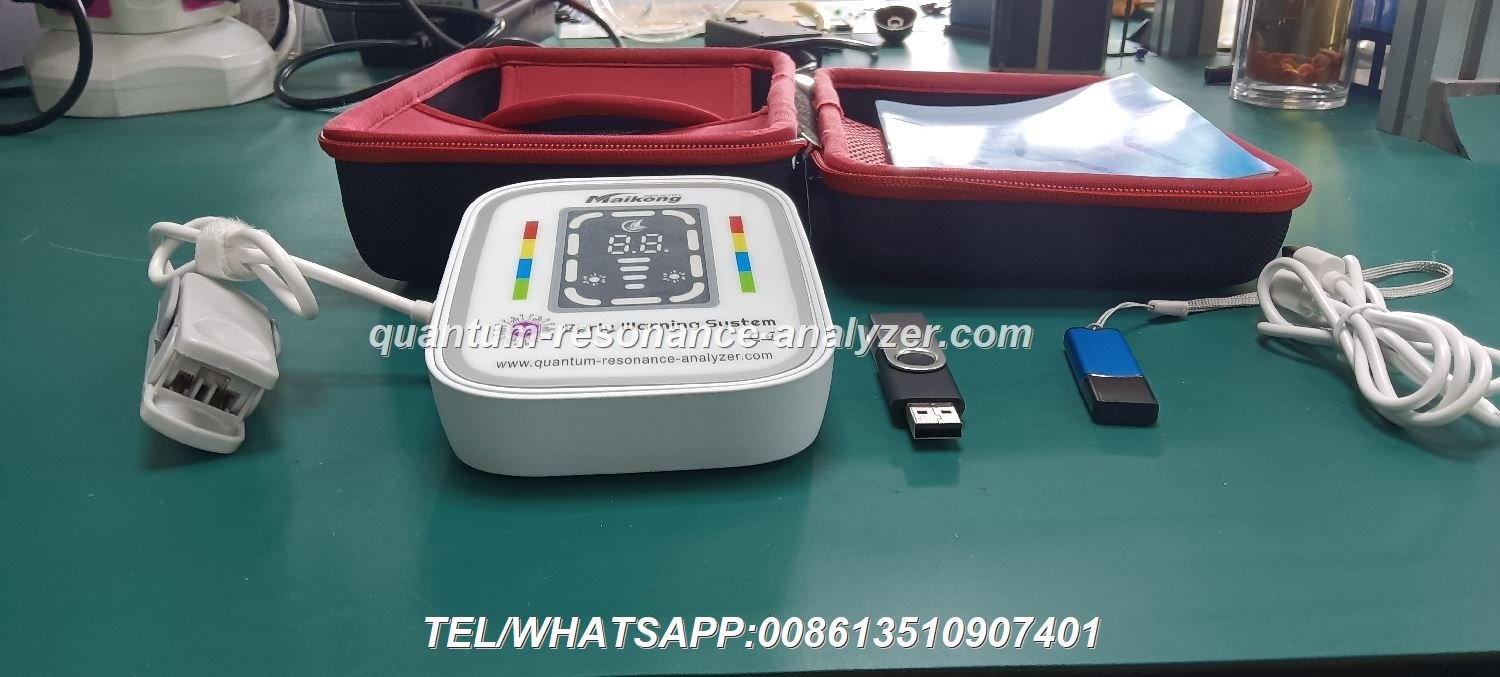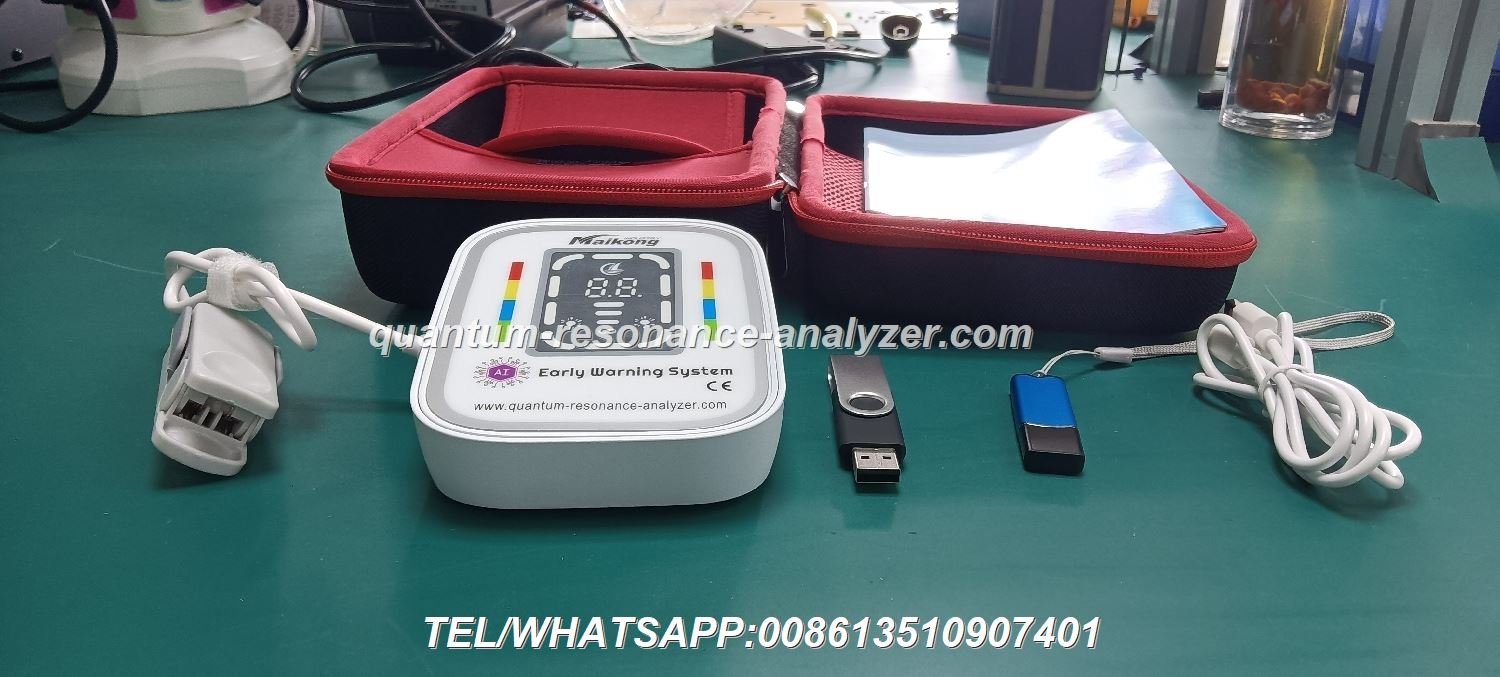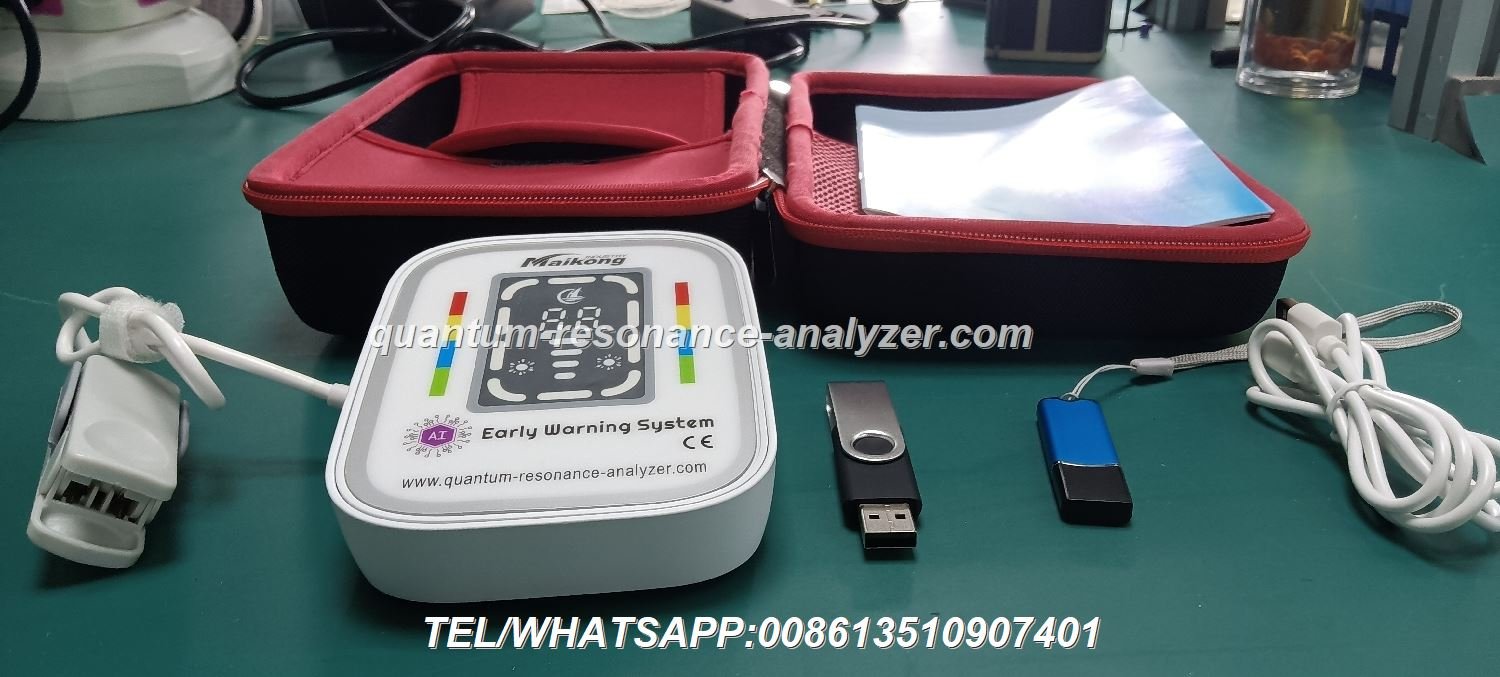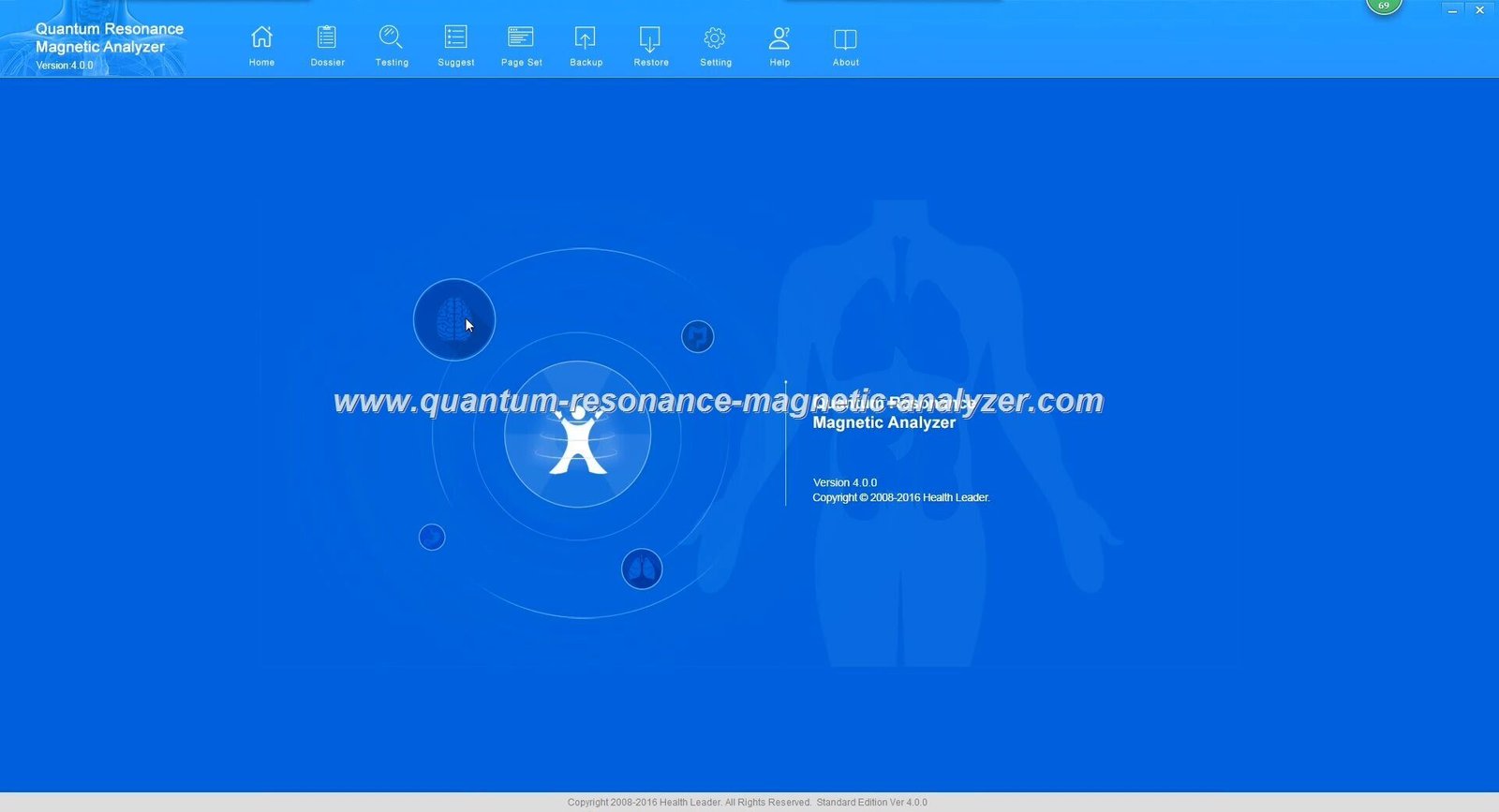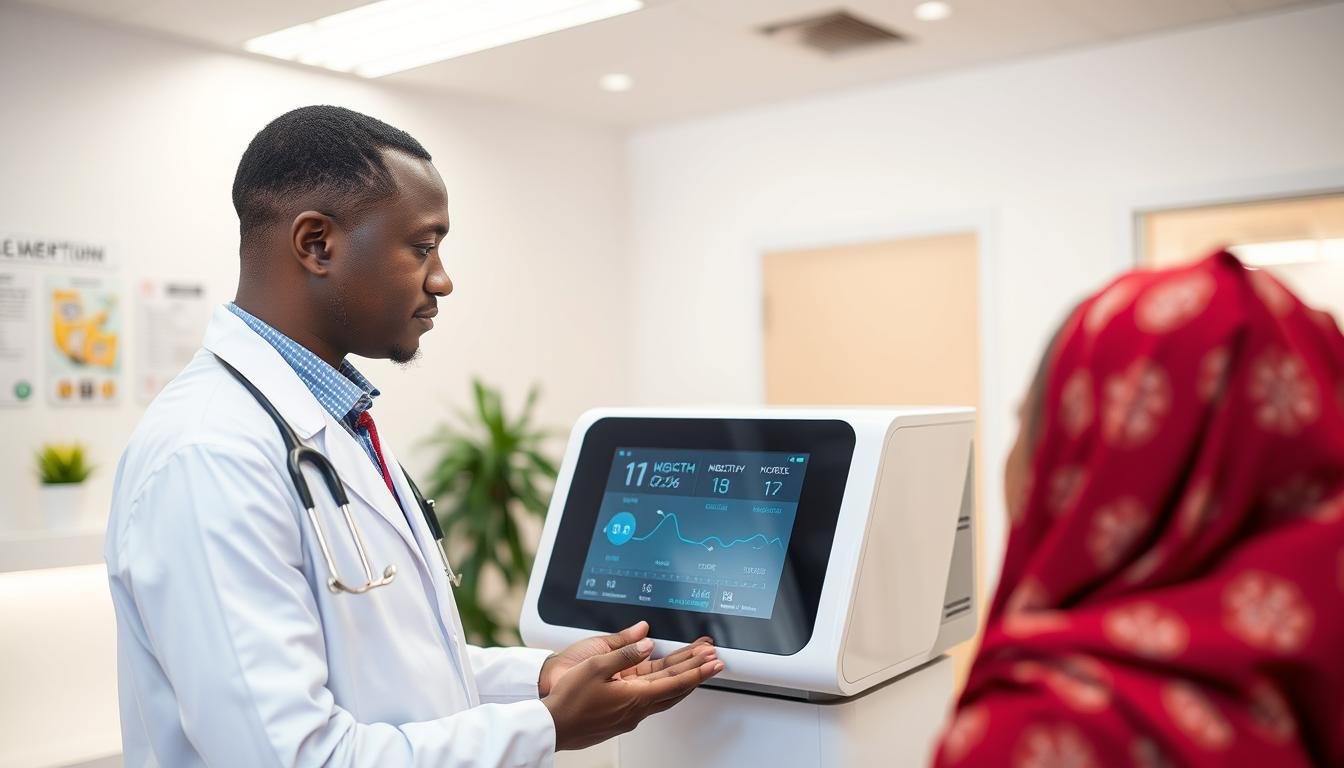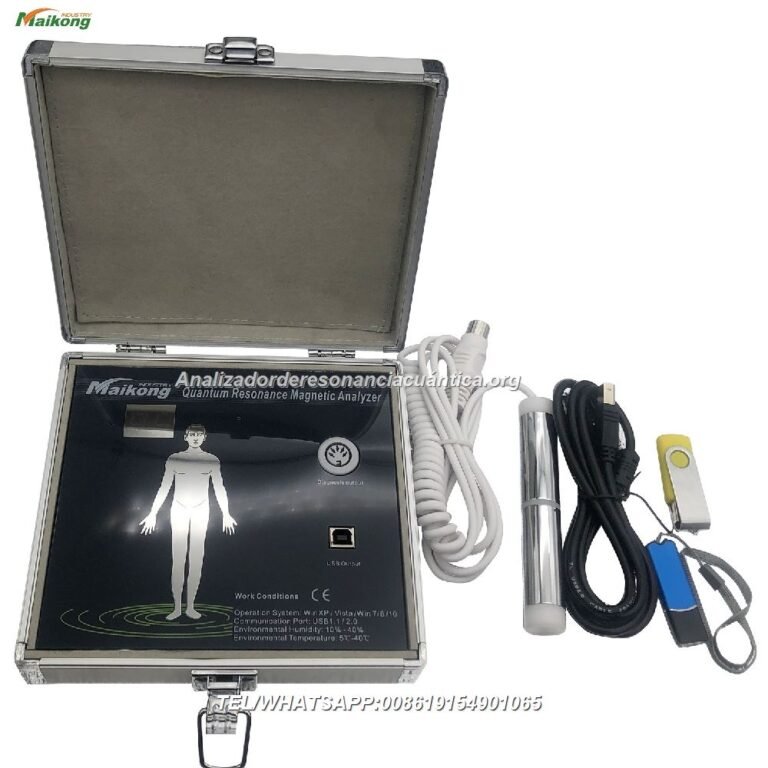Nigeria Quantum Resonance Magnetic Analyzer
Quantum Health Analyzer: Revolutionizing Personalized Wellness Through Advanced Technology
CATEGORY AND TAGS:quantum resonance magnetic analyzer enquiry
- Specifications
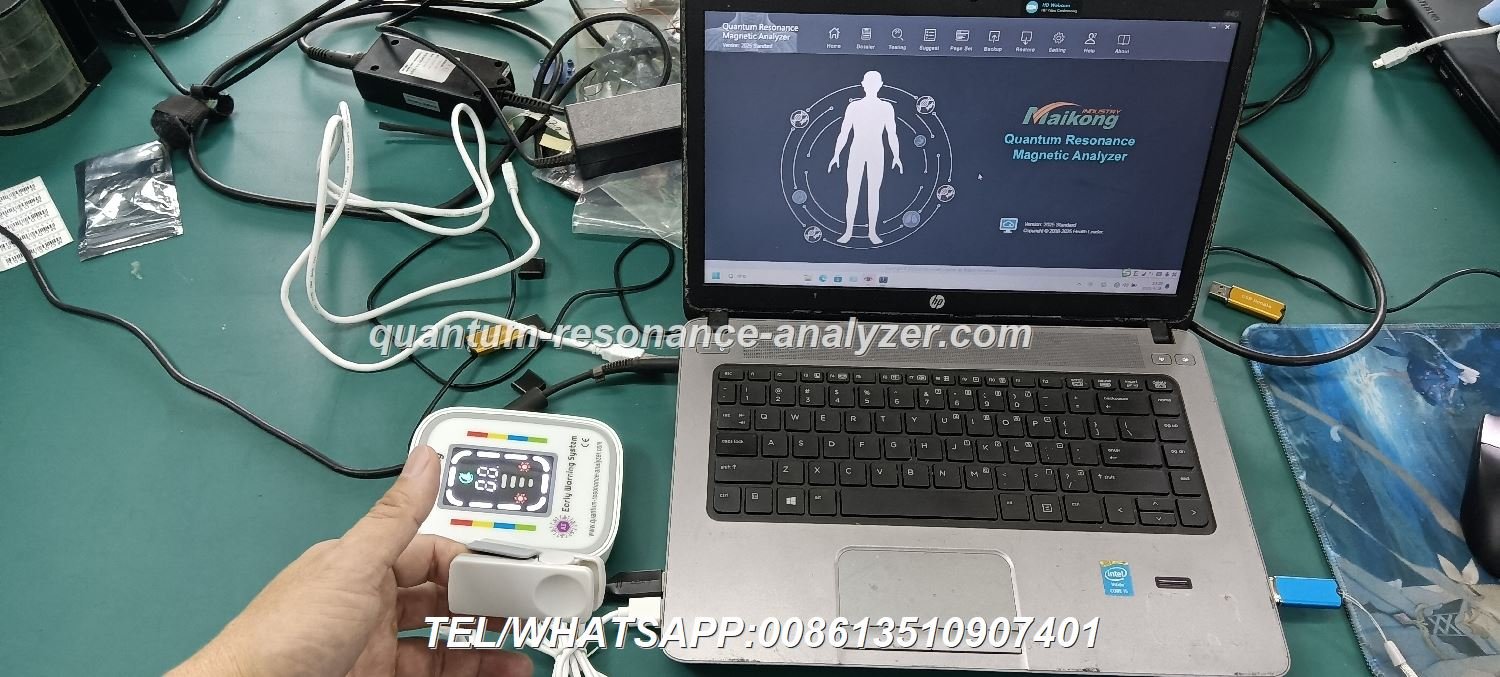
Understanding Quantum Health Analyzers
A quantum health analyzer is a non-invasive diagnostic device that measures the body’s quantum energy fields to assess health status across multiple systems. Unlike traditional diagnostic tools that often require blood samples or tissue analysis, quantum analyzers collect data through sensors that detect subtle electromagnetic signals emitted by the body’s cells.
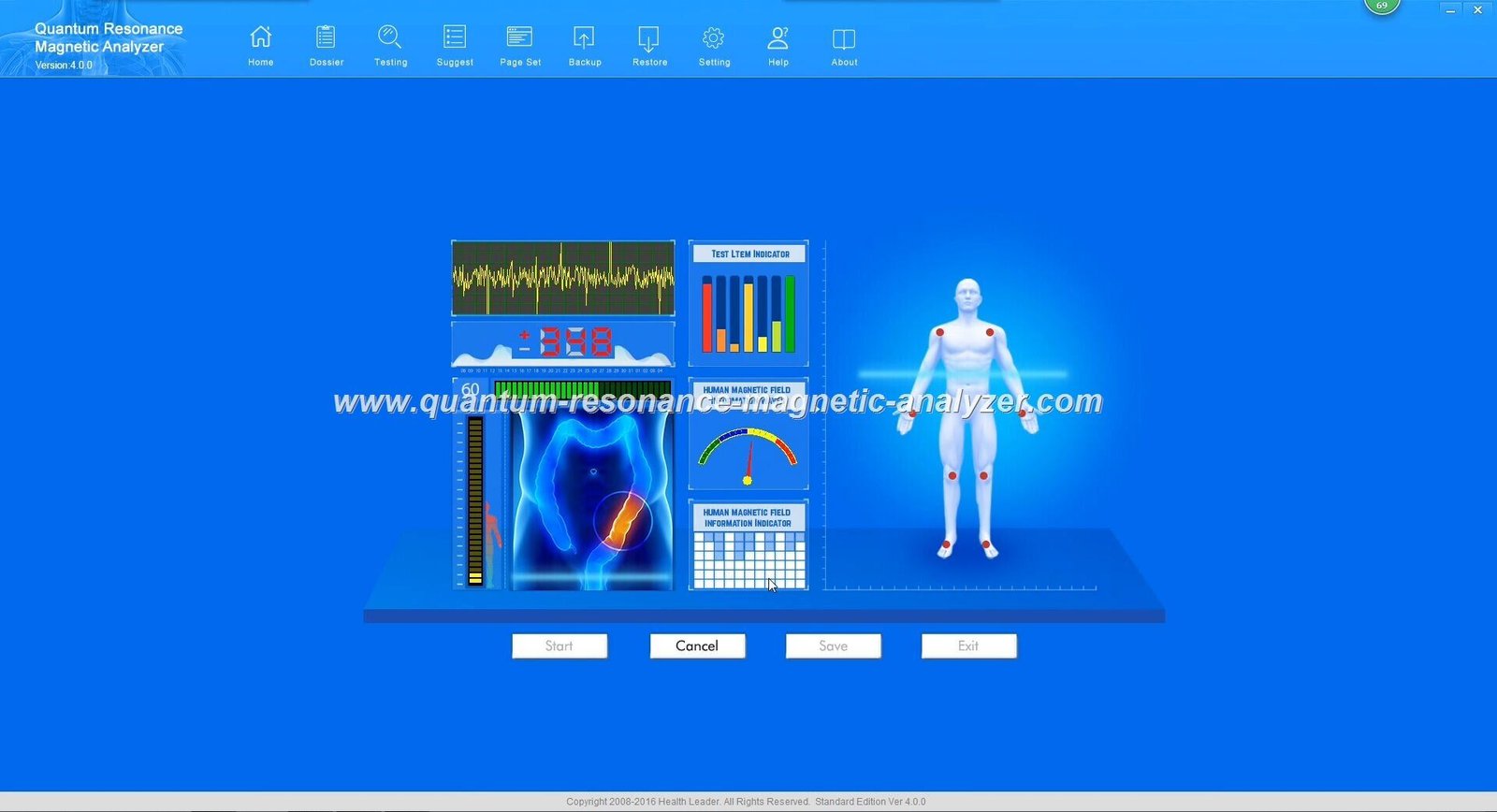
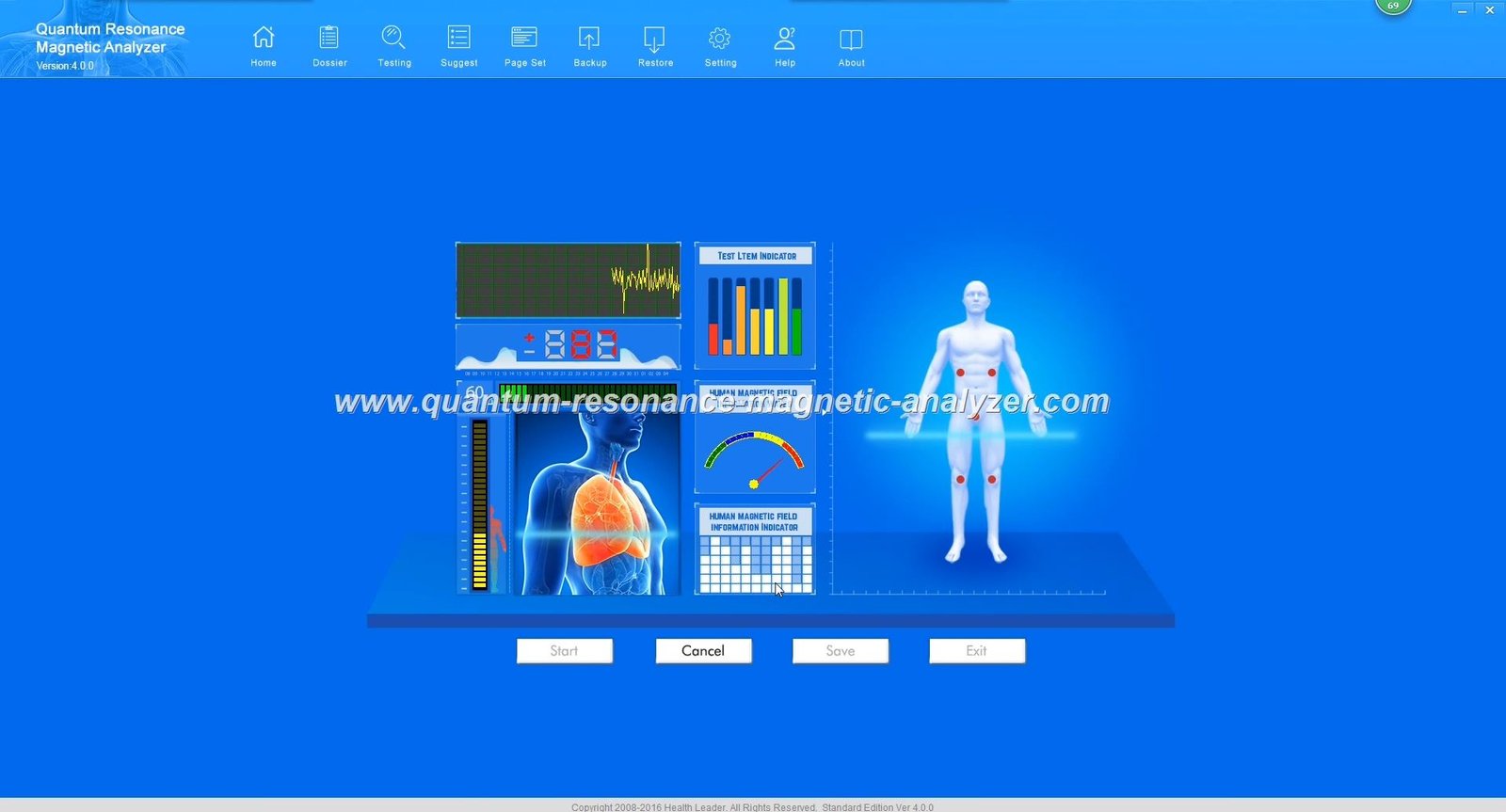

These devices operate on the principle that all cells and organs emit unique electromagnetic frequencies. When these frequencies deviate from their normal patterns, it may indicate imbalances or potential health concerns before physical symptoms appear. The analyzer captures these subtle energy variations and translates them into comprehensive health reports.
Traditional Health Assessment
- Invasive blood tests and tissue sampling
- Isolated system analysis (cardiovascular, digestive, etc.)
- Often reactive to existing symptoms
- Multiple appointments with different specialists
- Results typically take days or weeks
Quantum Health Analysis
- Non-invasive energy field measurement
- Comprehensive whole-body systems analysis
- Preventive approach detecting subtle imbalances
- Single session for multiple health parameters
- Immediate results and reports
The Science Behind Quantum Health Analysis

Quantum Resonance Technology
Quantum resonance forms the foundation of these analyzers. This principle suggests that all matter, including human cells, exists in a state of vibration. These vibrations create resonance patterns that can be measured and analyzed. Quantum health analyzers detect these resonance signatures and compare them against established baseline patterns to identify deviations.
Biofeedback Mechanisms
The analyzer utilizes sophisticated biofeedback technology to establish a two-way communication with the body’s systems. When a person holds the device’s sensor, it collects electromagnetic signals and simultaneously sends micro-current signals that measure how different body systems respond. This interactive process provides insights into the body’s regulatory capabilities.

Energy Field Analysis
Every living organism generates a complex energy field that quantum physicists refer to as the “biofield.” This electromagnetic field contains information about cellular activity, organ function, and overall health status. Quantum analyzers map these energy fields to create a comprehensive picture of the body’s current state and potential areas of concern.
Explore the Science of Quantum Analysis
Want to understand how quantum technology can provide insights into your health? Download our free guide to learn more about this revolutionary approach.
5 Key Benefits of Quantum Health Analyzers
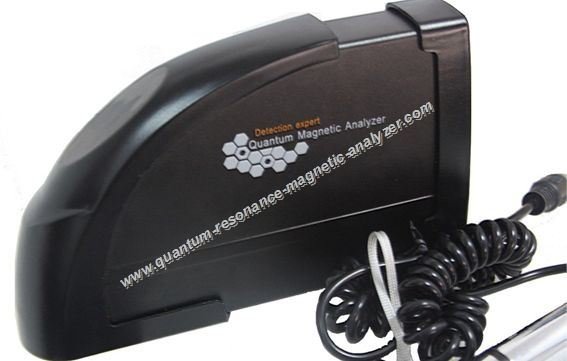
1. Non-Invasive Diagnostics
Quantum analyzers eliminate the need for needles, blood draws, or tissue samples. The entire assessment process involves simply holding a sensor or placing it near the body, making it ideal for those with medical anxieties or conditions that make traditional testing difficult.
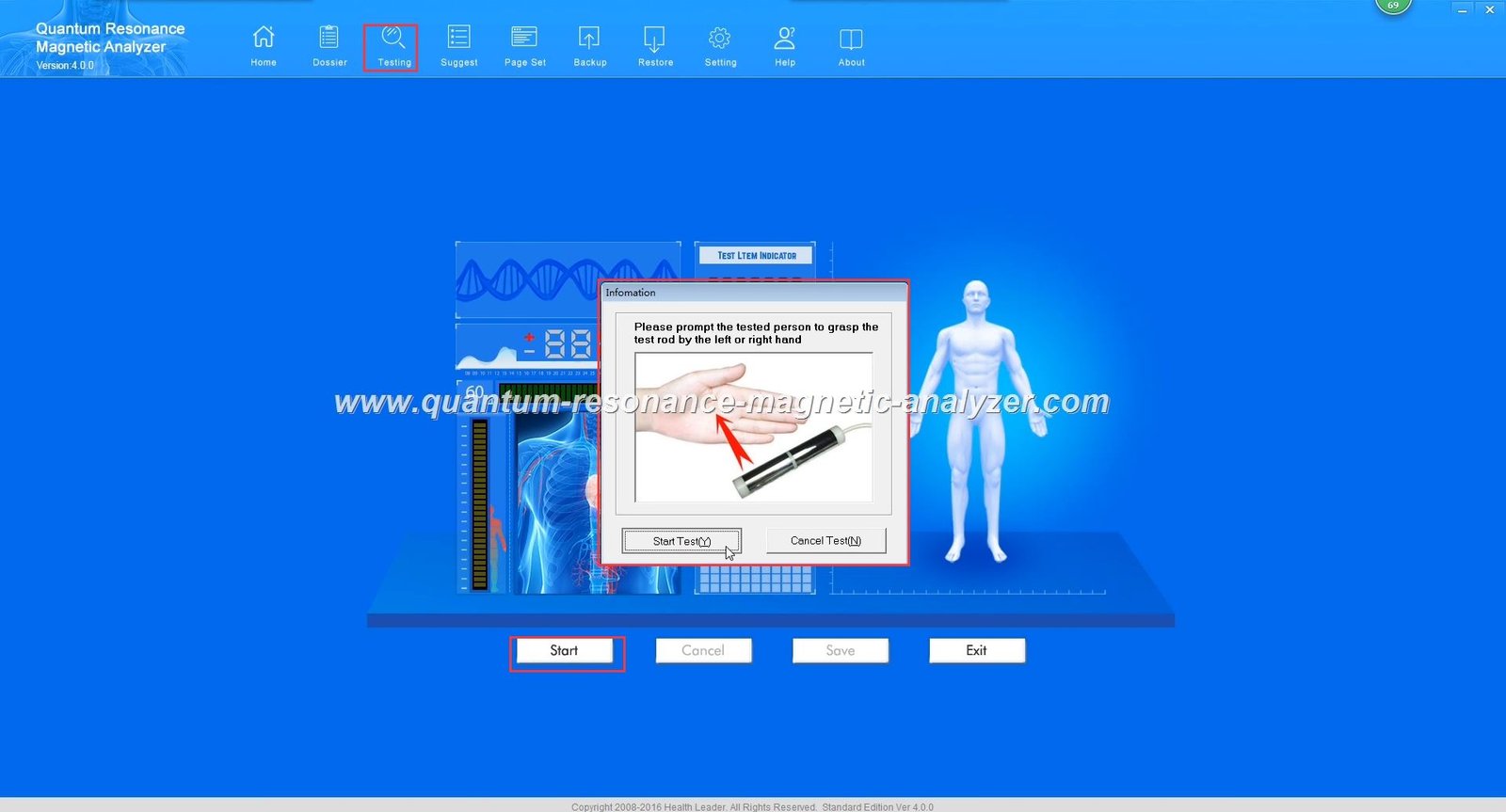
2. Real-Time Health Data
Unlike conventional tests that may take days or weeks for results, quantum analyzers provide immediate feedback. This real-time analysis allows for on-the-spot discussions about health status and potential interventions, enhancing the efficiency of health consultations.

3. Holistic Health Insights
Quantum analyzers assess multiple body systems simultaneously, providing a comprehensive overview of health status. This holistic approach helps identify interconnected issues that might be missed when examining systems in isolation, leading to more effective health strategies.

4. Early Detection Capabilities
By measuring subtle energy imbalances, quantum analyzers can potentially identify health concerns before they manifest as physical symptoms. This early warning system enables proactive intervention, potentially preventing the progression of health issues.

5. Personalized Health Recommendations
Based on individual analysis results, quantum health analyzers can generate tailored recommendations for diet, supplements, lifestyle changes, and further medical investigation. This personalized approach supports more effective health management strategies.
Practical Applications of Quantum Health Analyzers

Preventive Healthcare
Quantum health analyzers excel in preventive medicine by identifying subtle imbalances before they develop into clinical conditions. Regular scanning can establish baseline measurements and track changes over time, allowing for early intervention when deviations occur. Many wellness centers and integrative health practices use these devices as part of comprehensive prevention programs.

Chronic Disease Management
For individuals with chronic conditions, quantum analyzers provide a complementary monitoring tool alongside conventional medical care. The technology can help track how lifestyle changes, medications, and other interventions affect various body systems, potentially identifying which approaches are most effective for the individual’s unique physiology.

Nutritional Assessment
Quantum analyzers can identify potential nutritional imbalances and sensitivities that may affect overall health. By analyzing how the body responds to various substances, these devices help develop personalized nutrition plans that address individual needs rather than following generic dietary guidelines.

Performance Optimization
Athletes and fitness enthusiasts use quantum analysis to fine-tune their training regimens and recovery protocols. By identifying energy imbalances, potential weaknesses, and recovery status, these devices help optimize performance while minimizing injury risk. Professional sports teams increasingly incorporate this technology into their comprehensive athlete monitoring systems.
Discover How Quantum Analysis Can Support Your Health Goals
Whether you’re focused on prevention, managing a health condition, or optimizing performance, quantum health analysis offers valuable insights.
Quantum Health Analyzers vs. Conventional Medical Devices
| Feature | Quantum Health Analyzers | Conventional Medical Devices |
| Invasiveness | Non-invasive, requires only sensor contact | Often invasive (blood draws, tissue samples) |
| Analysis Time | Minutes for comprehensive assessment | Hours to weeks depending on tests |
| Scope of Analysis | Multiple body systems simultaneously | Usually focused on specific systems |
| Early Detection | Can detect subtle energy imbalances before symptoms | Typically detects existing conditions |
| Medical Acceptance | Limited in conventional medicine | Widely accepted and standardized |
| Scientific Validation | Emerging research, limited clinical trials | Extensive research and clinical validation |
| Cost Per Assessment | Generally lower for comprehensive analysis | Higher when multiple tests required |
Advantages of Quantum Analyzers
- Non-invasive and painless procedure
- Comprehensive assessment in a single session
- Immediate results and feedback
- Potential for early detection of imbalances
- More affordable than multiple conventional tests
- No biological sample handling or laboratory processing
Limitations of Quantum Analyzers
- Limited acceptance in conventional medical settings
- Varying standards between different devices and manufacturers
- Requires skilled interpretation of results
- Not a replacement for critical diagnostic procedures
- Results can be influenced by environmental factors
- Ongoing research needed to validate specific applications
Challenges and Limitations

Regulatory Considerations
Quantum health analyzers face varying regulatory classifications across different countries. In many regions, they are approved as biofeedback devices for general wellness rather than diagnostic medical equipment. This regulatory status limits the specific health claims manufacturers can make and influences how the technology is positioned in the marketplace.
Scientific Validation
While the theoretical foundations of quantum analysis draw from established physics principles, the specific applications in health assessment continue to undergo scientific scrutiny. More peer-reviewed research and clinical trials are needed to validate the technology’s effectiveness for specific health conditions and to standardize interpretation protocols.
“The field of quantum bioenergetics shows promise, but requires rigorous scientific validation through controlled studies and standardized protocols before its full potential in healthcare can be realized.”
Medical Community Skepticism
Many conventional medical practitioners remain skeptical about quantum health analyzers due to the limited peer-reviewed evidence and the theoretical framework that differs from traditional medical models. Building bridges between conventional and complementary approaches remains an ongoing challenge for the field.
Important Note: Quantum health analyzers should be used as complementary tools alongside conventional medical care, not as replacements for essential diagnostic procedures or treatments prescribed by healthcare providers.
Future Trends in Quantum Health Analysis

AI Integration
The next generation of quantum analyzers will likely incorporate advanced artificial intelligence to enhance data interpretation and personalization. Machine learning algorithms can identify patterns across large populations while refining analysis for individual users, potentially improving accuracy and expanding the range of detectable health patterns.

Wearable Quantum Sensors
The evolution toward miniaturized, wearable quantum sensors will enable continuous health monitoring rather than point-in-time assessments. These devices could track subtle energy field changes throughout daily activities, sleep cycles, and stress responses, providing unprecedented insights into how lifestyle factors affect health in real-time.
Integration with Conventional Medicine
As research advances, we may see greater integration between quantum analysis and conventional medical diagnostics. Collaborative approaches that combine the comprehensive, non-invasive benefits of quantum technology with the specificity of traditional testing could provide more complete health assessments while reducing the need for invasive procedures.

Standardization and Validation
The industry is moving toward greater standardization of quantum analysis protocols and interpretation guidelines. This evolution will likely include more rigorous clinical validation studies, potentially leading to wider acceptance in conventional healthcare settings and more specific applications for particular health conditions.
Taking the Next Step with Quantum Health Analysis
Quantum health analyzers represent an innovative approach to understanding the complex systems of the human body. While the technology continues to evolve and gain scientific validation, it offers a valuable complementary tool for those seeking comprehensive, non-invasive health insights.
For individuals interested in exploring quantum health analysis, consider these actionable steps:
- Research certified practitioners who have proper training in quantum analysis interpretation
- Look for providers who use quantum analysis as part of a holistic approach rather than as a standalone solution
- Maintain realistic expectations about what the technology can and cannot detect
- Share results with your primary healthcare provider to integrate insights into your overall health plan
- Consider periodic assessments to track changes over time rather than relying on a single analysis
Ready to Experience Quantum Health Analysis?
Discover how this revolutionary technology can provide insights into your health and wellbeing with a personalized consultation.
Frequently Asked Questions
Is quantum health analysis scientifically validated?
Quantum health analysis is based on established principles of quantum physics and bioenergetics. While the theoretical foundation is sound, the specific health applications continue to undergo scientific validation. Some aspects have more research support than others, and the field is actively developing. For best results, consider quantum analysis as a complementary tool alongside conventional medical approaches rather than a replacement for evidence-based diagnostics.
Can quantum analyzers replace blood tests?
Quantum health analyzers should not be viewed as replacements for conventional blood tests or other medical diagnostics. They provide different types of information based on energy field analysis rather than direct biochemical measurements. While quantum analyzers can offer valuable complementary insights, critical medical decisions should still rely on clinically validated tests. The most effective approach is often integrative, using both conventional and complementary methods for a more complete health picture.
How often should you use a quantum health scanner?
The optimal frequency for quantum health analysis depends on individual health goals and circumstances. For general wellness monitoring, quarterly assessments provide a good balance, allowing detection of seasonal variations and lifestyle changes. Those actively addressing specific health concerns might benefit from monthly sessions to track progress. Athletes in training may use the technology more frequently to monitor recovery and performance optimization. Consult with a qualified practitioner to determine the most appropriate schedule for your specific situation.

Contact us By WhatsApp:


